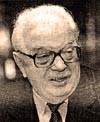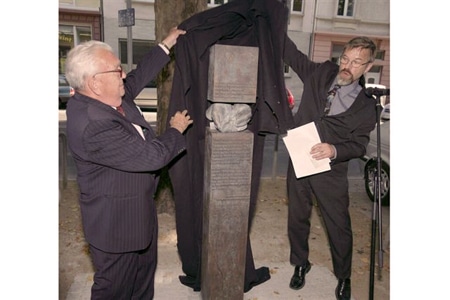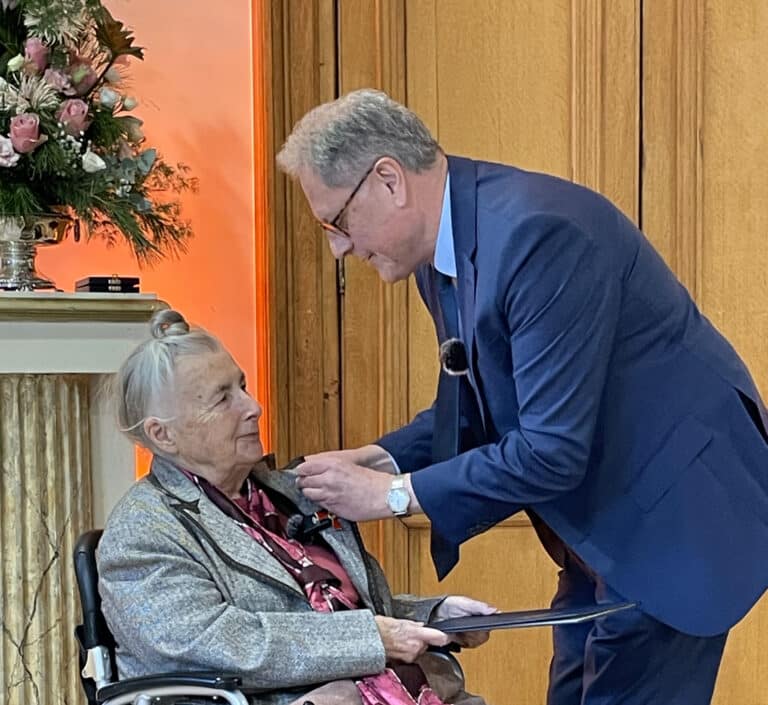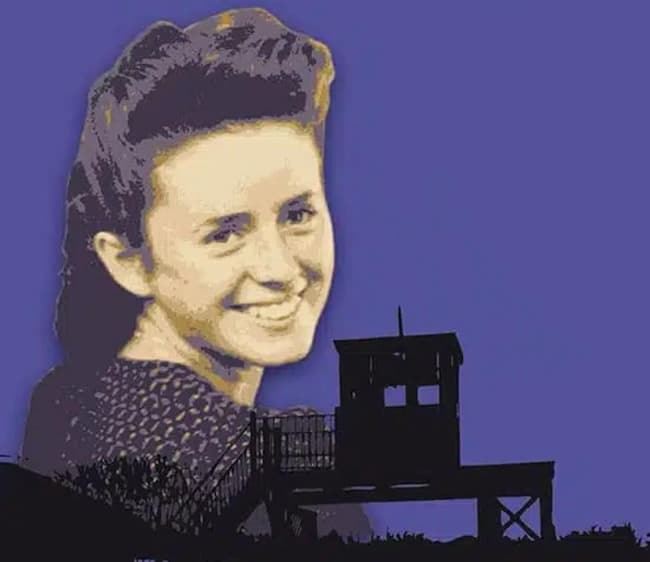
Josef Niklasch was born on September 17, 1918 in Sternberg (in the former Sudetenland). In 1932, at the age of 14 he came in contact with the Bible Students, or Jehovah’s Witnesses as they were known from 1931. From 1935 he worked as a typesetter in the branch office of Jehovah’s Witnesses in Prague.
The entry of German troops into Prague in 1939 marked the start of his flight clear across Europe, as this religious organization had already been banned since 1933 in Germany and large numbers of its members had already been taken to the concentration camps.
Josef fled without papers first to Austria. There he worked in an underground printery producing the banned magazine “Watchtower”. Soon he made his way to Harlem in order to assist in the setting up of a printery in the Netherlands branch office of Jehovah’s Witnesses. The project was barely completed when the Netherlands too was occupied by German troops. Josef Niklasch’s visa application was denied and his expulsion to Germany was decreed. Due to the intervention of Dutch fellow believers, he was not handed over to the German police, which would have meant his immediate internment in a concentration camp. Under cover of darkness, he was taken across the border into Germany. He succeeded in making his way back to Austria, where he again took up the work of producing the “Watchtower”, the publication prohibited by the National Socialists.
On June 12, 1940 he was arrested by the Gestapo, and brought before the court in Vienna. He was charged with undermining the military and conscientious objection and was sentenced to 8 years imprisonment after the end of the war. It was counted against him as especially serious that he had enclosed along with each “Watchtower” the farewell letter of a Bible Student who had been executed for refusing to perform military service. Josef Niklasch was interned in concentration camps for the remainder of the war.
First of all, he was sent to a Moorlager (marsh camp) on the Dutch border, the I Börgermoor camp. There he was forced to perform heavy labor in a marsh area until he was as thin as a skeleton. In late 1943 he was transported to the Brandenburg Prison near Berlin. There he had to work in the detention center’s printery. He experienced up close the execution of prisoners, many themselves conscientious objectors. He heard their screams, witnessed how they had to form a line to be executed, and he also saw the coffins of the executed. When a coffin was carried out, the next condemned had to proceed to the scaffold. Many of his brothers in the faith also suffered this fate. Many prisoners were executed just before the prisons were closed. On April 27, 1945 he was liberated by the Red Army after a dramatic shootout over the heads of the prison inmates.
After the liberation, the authorities blocked his return to his old homeland and he was not allowed to enter the Sudetenland. Thus he went to Magdeburg to the pre-war branch of Jehovah’s Witnesses in Germany. There he came to know his wife Margarete, who similarly had spent many years as a prisoner in the Ravensbrück concentration camp. After a short period of peace and quiet, Josef and Margarete Niklasch were again subjected to reprisals in the DDR on account of their faith. Once again, they were subjected to surveillance, interrogations, discrimination in the workplace, and arrest. The couple eventually moved to Frankfurt am Main in 1956. Josef lived for 50 years on Röderbergweg. Margarete died on March 26, 1994. As a widower, he continued to carry out as always his missionary activity as one of Jehovah’s Witnesses. Many residents of Bornheim knew him, as he was always working on Berger Strasse. But he had also undertaken a new task: at many special events and discussion groups he gave an eyewitness account of life under totalitarian governments. In so doing, he wanted to show that true Christian faith had motivated people at that time to morally resist and to have the courage to stand up for their beliefs.

On September 5, 2005, together with the then head of the City’s Culture department, Dr. Nordhoff, he unveiled a memorial for victims of persecution among Jehovah’s Witnesses in Frankfurt. It stands in front of their house at 58 Rohrbachstrasse. His last appearance as a living eyewitness to those times was on April 6, 2006 in the “Erzählcafé” of the Institut für Stadtgeschichte (Frankfurt Institute of Local History), chaired by Dr. Fleiter.


